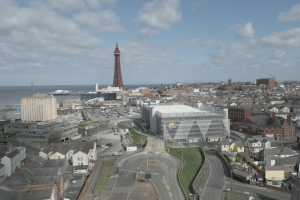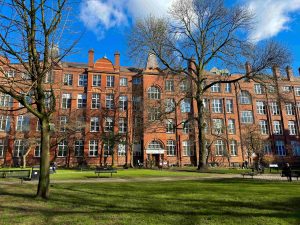Landlords could clean up in Manchester, says Cityco chief

BUSINESS owners and landlords in Manchester city centre may have to take more responsibility for services such as street cleaning and security as public spending cuts bite, according to Cityco chief executive Vaughan Allan.
The scenario of some of the larger landlords and business owners contributing towards services that are currently financed via business rates is an issue that Allen raises in Cityco’s new annual review, which is being distributed among its members today.
Allen said that although the full impact of the cuts is yet to be felt, there is already a realisation among members who have paid for rates to cover street cleaning and public space improvements that “it isn’t going to stay that way forever”.
He ruled out the formation of a central Business Improvement District, though, describing Cityco’s own management role as being “like a super-BID” but without the associated bureaucracies.
The review also contains updates on the city centre management company’s activities, such as the Greening The City initiative which recently kicked off with its first public park creation in Piccadilly Basin to its efforts in rolling out a publicly-available, free wi-fi network.
The company has worked alongside Manchester Digital Development Agency on putting wi-fi hotspots in areas such as Albert Square for public events, but Allen envisages an eventual roll-out across the city centre – emulating a project in London which has seen wi-fi made available in many of the city’s public parks.
“These are the little things that help to improve the experience of a city.”
Allan said that overall footfall figures for Manchester continue to increase despite the tough market conditions. He added that Cityco itself would continue with its existing programme of events, such as the Christmas markets, the Manchester Picnic and the new Piccadilly Family Fair and Big Top.
It will also continue with the advertising campaign launched last September promoting Manchester along Transpennine and Northern Rail routes.
However, he said that Cityco also needed to add more family-friendly events to the calender, particularly during the period between June and August where tourist visits dip, in contrast with other regional UK cities.
Overall, though, he argued that the city had an in-built advantage over many of its close competitors due to the amount of ongoing development activity.
“Leeds has got Trinity Square but it’s just a shopping centre. Here, we have big opportunities with schemes like Mediacity and the Co-operative’s new headquarters, which is looking really exciting.”
He added that developments like the Co-Op’s £800m NOMA scheme, the proposals for the £600m Central Salford scheme and the Irwell City Park project would also help to push the barriers of the city outwards, incorporating more green space and providing the potential for the development of new services such as doctors and schools that could spark a new wave of family-orientated residential development.
“I walked up to the Sharp Project the other week and you notice the spread of the city on the other side of Great Ancoats Street. There were already some media companies and a couple of bars on the other side, and with developments like the new Metrolink station and the police headquarters up at Central Park I can see that they could almost overlap at some stage in the future.”
Should Manchester’s private sector landlords contribute towards the cost of street cleaning and security? Share your views in the comments box below.








